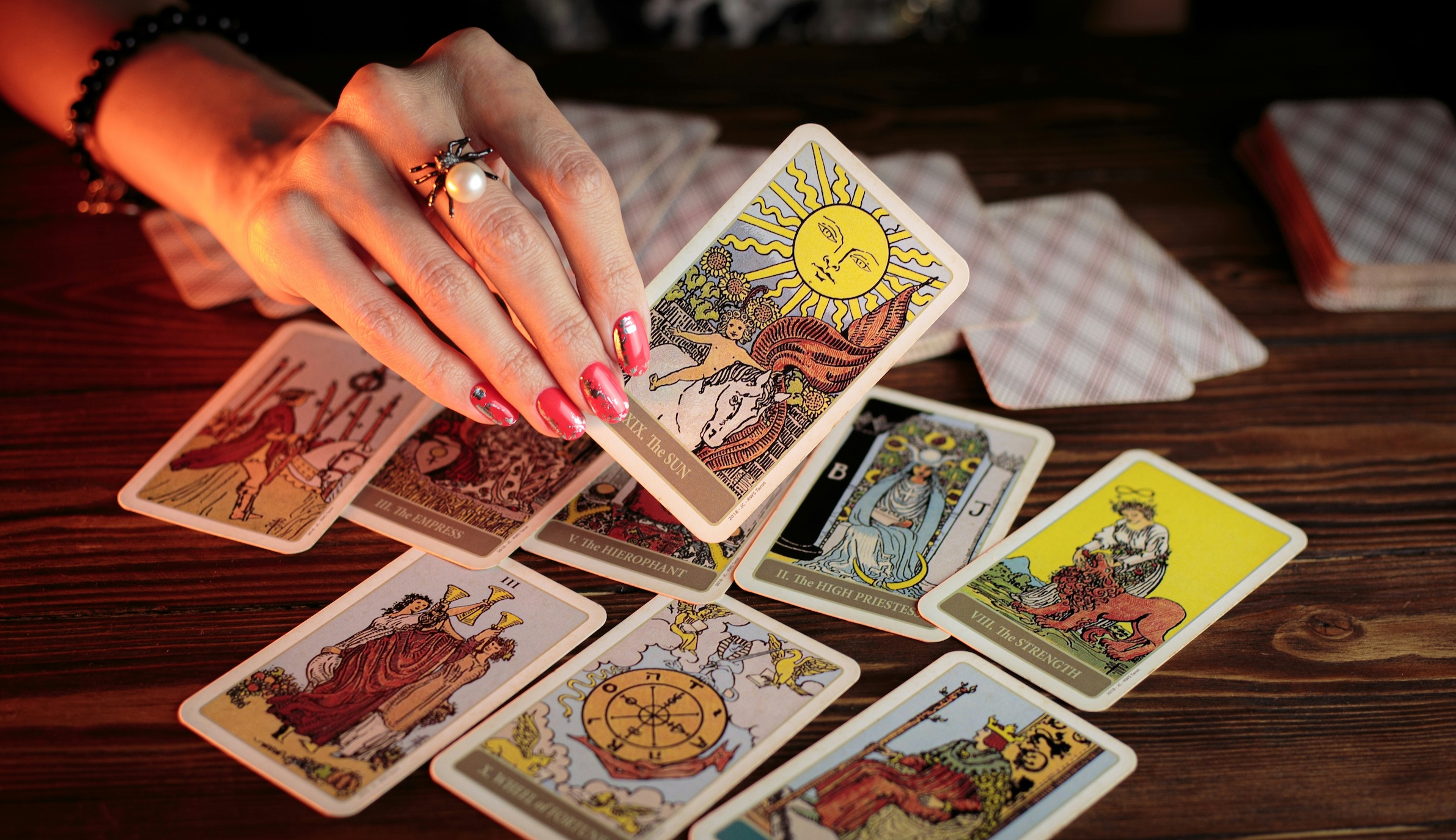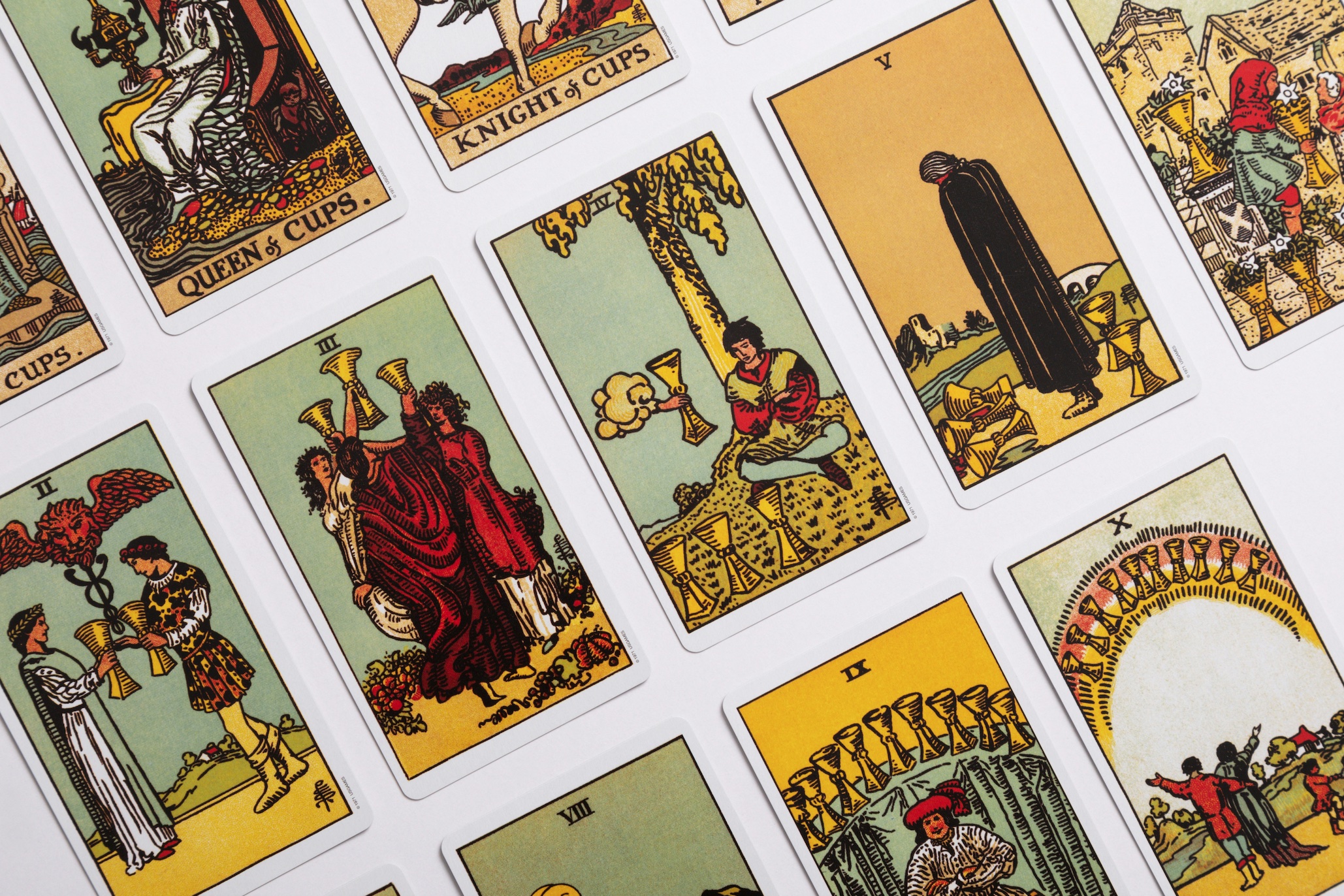Even tarot readers who believe strongly in the power of the tarot will remind clients that their choices are still their own and that they should not rely solely on tarot cards to make major life choices.
In October of 2023, Beck Lawrence of the Serpent’s Key Shoppe and Sanctuary in Hanover, Pennsylvania thought that a newspaper profile of the shop would bring some much-needed attention to the store. However, Lawrence wasn’t expecting that attention to come from the police. The newspaper article explained that customers visit the shop for an array of metaphysical services, including fortune-telling by tarot card readings. When officers arrived at the store, they informed Lawrence that fortune-telling is illegal in Pennsylvania and that for-profit tarot card readings have been banned since 1861.
While the police did not arrest anyone or shut down the story, Lawrence found the experience intimidating but was glad that the cops didn’t press charges. “I just want to get back to business and continue serving my community because that’s what’s important here,” Lawrence told NewsNation.
The story made national headlines, including a write-up in the New York Times, and many tarot readers were caught unaware that tarot readings aren’t always legal in the United States.
Is Fortune Telling Legal?
The United States does not have a single national law governing the reading of tarot cards. Because the United States is a patchwork of local jurisdictions, state governments and a federal government, the laws can vary markedly from one town to the next and between states. In general, reading tarot cards is protected by the First Amendment’s protections for free speech, so long as the reader is not charging money. Once money changes hands, the protections are less clear-cut.
Starting in the nineteenth century, many local jurisdictions and some states enacted laws against fortune telling of any kind, including psychic readings, palm readings, and tarot. Oklahoma, Wisconsin, Minnesota, and North Carolina ban all tarot readings and fortune telling, for example. Massachusetts, by contrast, requires a license to practice fortune telling, while California has no state prohibitions. Generally, in most locations, fortune telling is regulated by local laws in individual cities and towns.
These laws were designed to prevent fraud because many practitioners of the time used claims of mystical powers to defraud their clients. A common fraud of the time involved a medium or tarot reader telling a client that there was a curse on them and only the payment of large sums of money for psychic services could break that curse.
Many of these anti-fortune telling laws have been on the books for nearly two centuries but have rarely been tested in court. There is an argument that free speech rights should trump regulation of a fortune telling business. For instance, if you were to write a book of prophecies based on tarot cards, you would have the full protection of the First Amendment, so many legal scholars believe that the same protections should apply to announcing the results orally.
For Entertainment Purposes
The crux of the matter often revolves around the question of whether tarot readings are actually a mystical connection to another realm or whether the tarot reader is committing fraud by alleging it. In the nineteenth century, under the influence of Biblical injunctions against fortune telling, it was widely believed that all tarot readings were either Satanic or fraudulent. Therefore, the government had the right to regulate or suppress practices the Bible had forbidden.
Today, this argument holds much less weight as belief in psychic powers has increased and New Age practices have multiplied. Some compare psychic services to religious services and note that there are no laws governing sermons or limiting the ability of preachers to offer faith healing or prayers.
However, the argument for protecting the public from fraud remains strong. In order to stay on the right side of the law, many tarot readers and online tarot reading services like TarotAtlas.com will display a disclaimer stating that their services are “for entertainment purposes only.” This is because they do not want to deceive their clients into believing that the tarot is the only way to achieve a goal or discover the truth.
Consider New York State’s fortune-telling law (NY Penal L § 165.35):
A person is guilty of fortune telling when, for a fee or compensation which he directly or indirectly solicits or receives, he claims or pretends to tell fortunes, or holds himself out as being able, by claimed or pretended use of occult powers, to answer questions or give advice on personal matters or to exorcise, influence or affect evil spirits or curses; except that this section does not apply to a person who engages in the aforedescribed conduct as part of a show or exhibition solely for the purpose of entertainment or amusement.
There is a specific exemption for stage shows, entertainment, and amusement. In other words, you can read tarot cards legally as long as you do not pretend to have occult powers.

These laws, however, are not always enforced rigorously and are generally enforced when there is a complaint of exploitation or fraud. Some jurisdictions worry that these laws may run afoul of the First Amendment, and generally prosecutors have chosen to apply them only in the most flagrant of cases of abuse when readers are exploiting vulnerable clients for money.
Even tarot readers who believe strongly in the power of the tarot will remind clients that their choices are still their own and that they should not rely solely on tarot cards to make major life choices, particularly if those readings come with fees. Tarot reading can be fun and it can be insightful, but it should never create financial hardship.


Join the conversation!